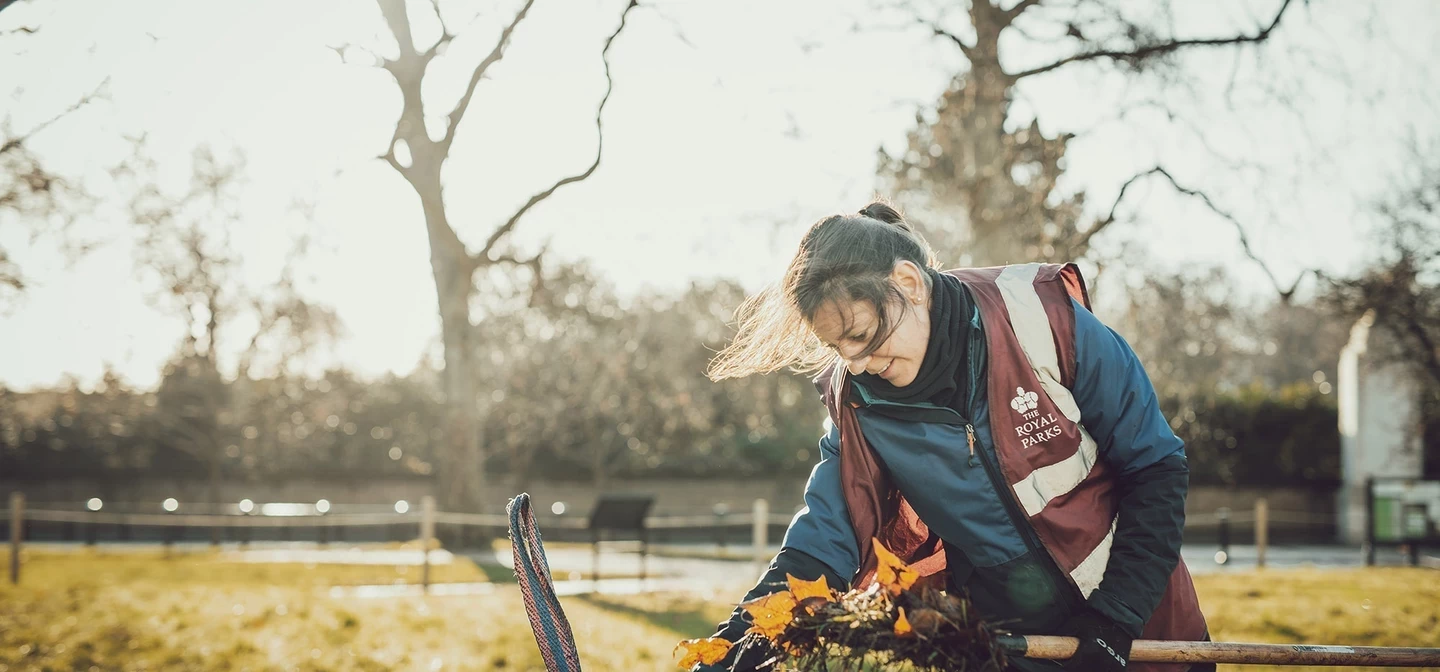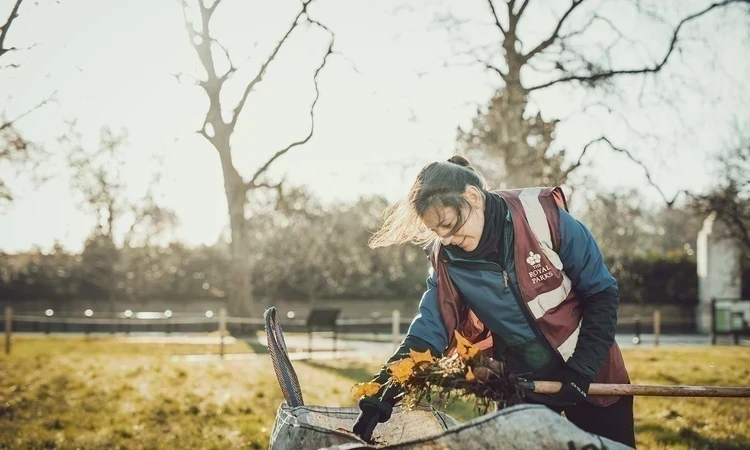
The Royal Parks urges visitors to take litter home to protect the wildlife
Charity landed with £1.3 million annual price tag to collect and dispose of litter from the parks
A plastic bag tightly wrapped around a stag’s mouth, a hedgehog caught on film entangled in a party balloon and a cormorant with a plastic beer-pack ring round its neck are among the most distressing effects of littering on wildlife seen by The Royal Parks’ staff this year.
Throughout the different lockdowns and beyond, piles of plastic bags filled with left-over picnic waste, pizza boxes, glass bottles, dog poo bags and PPE have been proving hazardous to wildlife. Small animals and birds can climb inside plastic bags or get their heads stuck in bottles or cans and suffocate.
Wildlife attracted to left-over scraps can accidently eat plastic waste, clogging up their intestines, causing them pain or even death by starvation. Deer become distressed if they get plastic bags tangled in their antlers and can cause a stampede which is dangerous to the public.
The Royal Parks charity, which manages London’s eight historic parks and other important green spaces in the capital, is highlighting the impact of discarded trash on wildlife as part of its ‘Help Nature Thrive’ campaign this summer. The campaign is asking visitors to ‘leave no trace’ and to take their rubbish home or put it in the bins if there is space.
It is illegal to leave litter in the Royal Parks and, under the park regulations, offenders could be fined.
In the last year* 1,982 tonnes of waste were collected from across the Royal Parks - that’s the equivalent weight of 157 new London Routemaster buses.
It costs The Royal Parks charity at least £1.3million a year to collect and dispose of litter discarded across the 5,000 acres of parkland in order to protect wildlife and keep the parks beautiful. There are often considerable additional costs when the parks are busy with high volumes of discarded rubbish, and litter-pickers having to start work before dawn to make sure the parks are beautiful before they open.
Sir David Attenborough, said:
“In busy London, the Royal Parks are a haven for wildlife and there are simple things we can all do to protect it and help it thrive. Litter, and especially plastic, is a growing danger to wildlife worldwide, and we can all help by taking it home or using the bins. Please also leave the wildflowers and fungi, the acorns and deadwood where they are; all of them are vital parts of the Parks’ ecology. Remember to tread lightly and leave no trace of your visit.”
Visitors are also reminded to ‘leave no trace’ by not lighting BBQs, which are not permitted in the parks and which can prove hazardous to wildlife, particularly when the grass is dry. Parks staff also highlight the importance of simple measures to protect the natural and biodiverse landscape of the parks, such as sticking to paths where requested to protect skylarks’ nests and ancient anthills; not to picnic in, or pick flowers from, the parks’ wildflower meadows, which provide food for pollinators such as bumblebees and butterflies; and not to attach exercise equipment to the trees as this can severely damage the trunk and the branches by crushing the growth tissues or causing breakages.
Tom Jarvis, Director of Parks at The Royal Parks, said:
“Sadly, we’ve all too often seen the devastating impact that dumping litter, leaving BBQs smouldering or treading into protected areas of the parks can have on the environment and wildlife.
“Taking that moment to decide to clear away a bottle or small piece of plastic rather than leaving it behind could make all the difference to the lives of the parks’ wonderful wildlife.
“We work round the clock to keep the parks beautiful, safe places for everyone to enjoy, but keeping the parks litter-free comes with a huge price tag. This is time and money that could be better spent on preserving the natural environment.
“We want to call upon park visitors to ask them to ‘help wildlife thrive’ and to ‘leave no trace’ by caring for the parks. Please take your litter home – or use the bins as a last resort.”
Notes to Editors:
* Between 2,000 and 2,300 tonnes of waste are collected from across the Royal Parks each year on average.
In the financial year 2020/21: 1,982 tonnes of waste were collected from across the Royal Parks - the equivalent of 157 new Routemaster buses (12.65 tonnes).
2019/2020: 2,292 tonnes of waste were collected from across the Royal Parks – the equivalent of 181 new Routemaster buses.
Related Articles
-
 Read
Read‘Dogs on leads’ to be compulsory during deer birthing season
From Monday 18 May until Monday 6 July, dogs will be required to be on a lead in all areas of Richmond and Bushy Parks.
-
 Read
ReadFeeding deer is the opposite of kind, says The Royal Parks
The Royal Parks is reminding visitors to Richmond and Bushy Parks that deer are wild and unpredictable animals.
-
 Read
Read‘Lockdown litter’ up by a third
Lockdown littering levels led to the equivalent of 20 London buses of rubbish collected from London's Royal Parks in June alone.